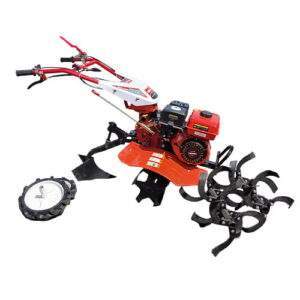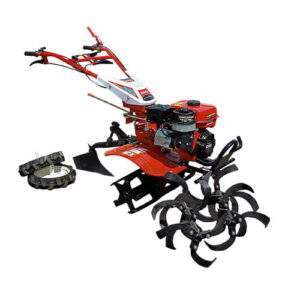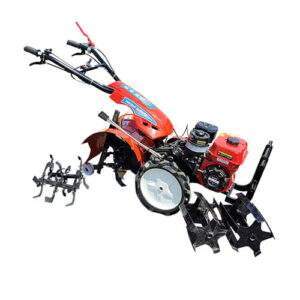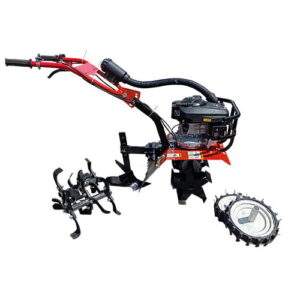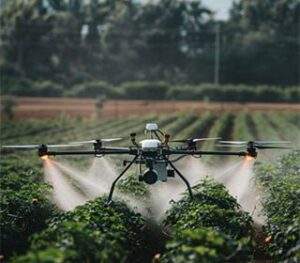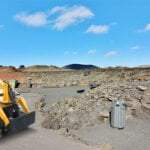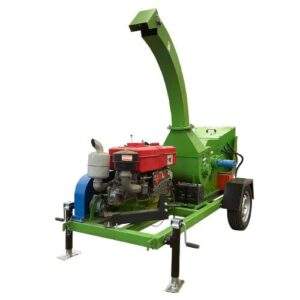Benefits of Using a Diesel Walking Tractor in Agriculture
Introduction
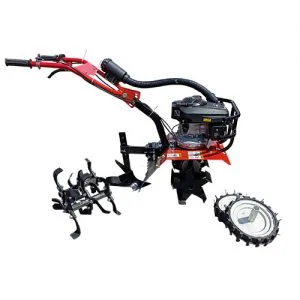
In the realm of modern agriculture, the diesel walking tractor has emerged as a pivotal tool, revolutionizing farming practices with its efficiency and versatility. This blog explores the myriad benefits of integrating diesel walking tractors into agricultural operations.
What is a Diesel Walking Tractor?
Before delving into its advantages, let’s define what a diesel walking tractor is and how it differs from other agricultural machinery. A diesel walking tractor is a compact, engine-powered machine designed for small to medium-scale farming tasks, characterized by its ability to navigate various terrains while performing essential agricultural operations.
Increased Efficiency in Farming Operations
One of the primary advantages of using a diesel walking tractor is its efficiency in performing multiple tasks. From plowing and seeding to harrowing and transporting goods, these machines streamline agricultural processes, saving time and labor.
Cost-Effectiveness and Operational Savings
The economic benefits of employing diesel walking tractors are significant. They consume less fuel compared to larger machinery, thereby reducing operational costs. Moreover, their multifunctionality reduces the need for multiple specialized machines, further saving on investment and maintenance expenses.
Environmental Benefits
Diesel walking tractors are designed with fuel efficiency in mind, emitting lower levels of pollutants per unit of work compared to older models or larger agricultural equipment. This environmental advantage aligns with sustainable farming practices and regulatory standards.
Adaptability to Various Terrain Types
Unlike traditional tractors that may struggle with uneven or narrow fields, diesel walking tractors excel in navigating diverse terrains. Their compact size and maneuverability make them ideal for small plots, hillsides, and areas with limited access.
Enhancing Farm Productivity
By facilitating quicker turnaround times and reducing dependency on manual labor, diesel walking tractors contribute to enhanced farm productivity. Farmers can accomplish more tasks in a shorter period, leading to improved overall yield and profitability.
Maintenance and Durability
Modern diesel walking tractors are engineered for durability and require less maintenance compared to larger machinery. Their robust build ensures longevity, minimizing downtime and repair costs—a crucial consideration for farmers.
Case Studies and Real-World Applications
To underscore their effectiveness, this section will highlight case studies from different regions where diesel walking tractors have made a significant impact on local agriculture. These examples will demonstrate practical applications and outcomes in various farming contexts.
Comparative Analysis: Diesel Walking Tractor vs. Conventional Machinery
A detailed comparison between diesel walking tractors and conventional agricultural machinery will be presented, focusing on performance metrics, operational costs, and environmental impact. This analysis aims to provide a comprehensive overview for farmers weighing their equipment options.
Comparative Analysis
| Feature | Diesel Walking Tractor | Conventional Machinery |
|---|---|---|
| Size | Compact | Large |
| Fuel Consumption | Low | High |
| Maneuverability | High | Limited |
| Environmental Impact | Lower emissions | Higher emissions |
| Initial Investment | Lower | Higher |
| Maintenance | Minimal | Regular upkeep required |
Case Studies and Real-World Applications
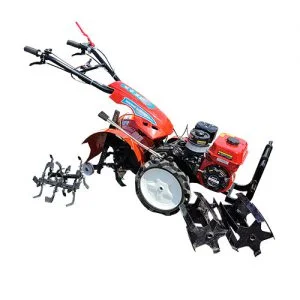
In various regions around the world, diesel walking tractors have proven transformative in agricultural practices. One notable case study is from rural India, where smallholder farmers traditionally relied on manual labor for farming tasks. Introducing diesel walking tractors significantly increased efficiency and productivity. Farmers were able to plow larger areas in less time, sow seeds more uniformly, and cultivate their fields more effectively.
Similarly, in parts of Southeast Asia where terraced fields are common, diesel walking tractors have enabled farmers to navigate steep slopes and tight corners with ease, enhancing both efficiency and safety. These real-world applications underscore the versatility and adaptability of diesel walking tractors in diverse agricultural settings. Such success stories highlight their potential to revolutionize farming practices and improve livelihoods globally.
Conclusion
In conclusion, the diesel walking tractor stands out as a versatile and efficient solution for modern agricultural challenges. Its ability to enhance productivity, reduce costs, and minimize environmental footprint makes it a valuable asset on today’s farms.
FAQ
Q:What tasks can a diesel walking tractor perform?
A:Diesel walking tractors can perform tasks such as plowing, seeding, harrowing, and transporting goods within the farm.
Q:How fuel-efficient are diesel walking tractors?
A:Diesel walking tractors are highly fuel-efficient compared to larger agricultural machinery, contributing to operational savings.
Q:Are diesel walking tractors suitable for small farms?
A:Yes, diesel walking tractors are particularly suitable for small to medium-scale farms due to their compact size and versatility.

